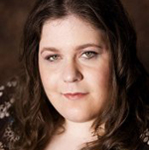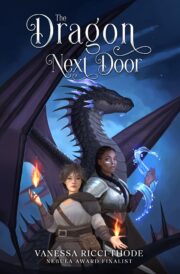Guest Post: Writing and Mortality
by Rachel Swirsky
 A year or two ago, the Guardian ran a series of articles collecting writing advice from famous authors. Some of the advice was irritating, some was true but banal, some was presumably profound, and some was amusing for its own sake.
A year or two ago, the Guardian ran a series of articles collecting writing advice from famous authors. Some of the advice was irritating, some was true but banal, some was presumably profound, and some was amusing for its own sake.
One piece of advice that got picked up and repeated was the idea that if you were working on a project, and found out that you had six weeks to live, and then would be willing to set aside the project, it was the wrong project.
I really dislike that advice. It seems to me that it originates from the same place that makes writers say things like “a real writer has to write” or “any writers who can be discouraged, should be.”
First of all, if we take a class or race or gender analysis, of course this is an easier thing for people who are reasonably well-off, or not mothers, or part of the dominant culture to say. They’re going to have a lot of advantages in not getting “discouraged.” Everything from bias in the system to more concrete and nameable problems like poverty and being the caregiver of small infants and so on.
But even ignoring that, I don’t think the idea that writers have to write has much traction. I don’t have to write. I have to eat. I have to sleep. I might miss writing. I don’t have to do it.
I feel like saying “I have to write” is a way of absenting oneself from agency over the decision, consciously or subconsciously. Writing is a risky career choice and one that doesn’t always yield a lot of concrete reward or social approval. But if one pretends it’s not a choice, then one doesn’t have to worry about those things, or at least not in the same way. It’s not their fault that they aren’t making more money; they have to write. They don’t have to doubt themselves; they had no choice. Likewise, how could you be so cruel to doubt them when this is something they must do to survive?
Art is cool. But it’s not bread.
And if I had six weeks to live, I would want to spend as much of them with my husband, family and friends as I possibly could.
I had to think about this recently because I came a little close to dying. Not as close as other people have been. I don’t want to make too much of my experience. But it changed the way I was looking at my life, and inevitably, it changed the way I was looking at my writing. For a while, I was viewing myself and my future with tunnelvision, as if I didn’t have a future to write in.
There were things I regretted about that. I wished very much that I would have been a better person. I wished I had experienced more. And sure, I wished I’d written better things, which in my framework of thinking about things would make me a bit of a better person (although I have to emphasize that I don’t think basing one’s self worth on one’s achievements is a healthy metric), and it would mean I’d had more experiences.
But what I really would have wanted, what I really would have missed, was time with my husband and my parents.
I don’t know. I don’t want to be maudlin about this. My intent isn’t to be all after-school-special I-wish-I’d-spent-less-time-on-my-work value-your-friends. But life has its beautiful, messy, wondrous parts, and art is–for me at least–an intense way of communicating them, of discussing the experience of being human, of bridging the gaps between our isolated little skull-bound brains.
But my commitment to communicating, in the abstract, with a future, imagined audience, must ultimately weigh less than my commitment to spending a few more hours of my last days with my husband.
I’ve been honored to know that my stories have reached people, and moved them, and made them think. This is one of the things I treasure about my life. But I don’t flatter myself that future generations will be impoverished for the lack of my last, six-weeks-to-live masterpiece. And I do flatter myself that my last six weeks, and my family’s, would be impoverished if I spent my time on that and not on them.
I don’t mean this as an argument against art at all. When there’s more than six weeks to live, obviously, calculations change. It’s worth it to me to eschew an hour or six of my husband’s company so that I can write a novel that it gives me joy to write, and hopefully gives other people joy to read. Hell, it’s worth it to me to eschew eight hours of his company a day so that we have enough money to live the way we want to live; we could undoubtedly subsist on less money earned in less time. (As an aside, I feel like I have to mention the projections that hand-to-mouth foraging societies are projected to have functioned with people working about ten hours a week, which provided them with a rich diet that may have been nutritionally superior to ours…)
Art is amazing. Life is amazing. Human beings are amazing. And if I didn’t think so, if I wasn’t awed by the complexity of it all, then I, personally, wouldn’t write at all.
But art is not only important if it’s the kind of art that would be written in someone’s last six weeks.
And artists aren’t only real artists if they would spend their last few days creating art.
•••
Rachel Swirsky‘s short stories have appeared in a number of magazines and anthologies, including Tor.com, Clarkesworld and Realms of Fantasy. Her first collection of fiction and poetry, Through The Drowsy Dark, is available through Aqueduct Press. Her second collection is forthcoming from Subterranean.
This post originally appeared at Big Other.


